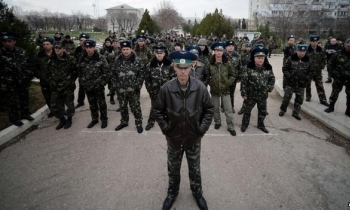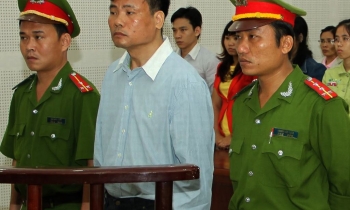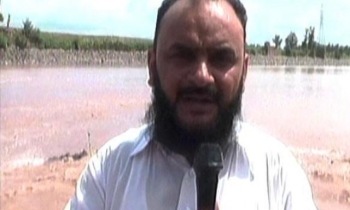For a few hours this week, it seemed the new year had started with a wondrous story.
" 'They're alive,' " a headline Wednesday in one edition of the Rocky Mountain News trumpeted of the trapped West Virginia coal miners, reflecting the moving pictures on the cable networks late Tuesday night.
The nation's heart had been with the men and their families. We were uplifted - and then crushed.
Forget for a moment that the truth was a blow to trust in journalism.
The much bigger blow was to the families and friends of the 12 miners who died.
As a former colleague now in public relations reminded me, the first rules of crisis management are "take care of the victims" and "don't make new victims."
Clearly the mine owners failed on that account, as did the media.
I've written extensively on my blog (you'll find it at RockyMountainNews.com) about the Rocky's handling of the miners' story.
What I haven't shared are the lessons I believe we can learn from what happened.
First, the old adage taught to young journalists at a legendary but now defunct news service in Chicago still holds true: "If your mother tells you she loves you, check it out."
Of course, our emphasis as journalists needs to be on checking "facts."
It's important for reporters to ask how someone knows something.
Do they have first-hand knowledge? If not, why are they sure of the accuracy of what they're saying?
The erroneous Associated Press story that the Rocky printed quoted the governor saying, "They told us they have 12 alive. "
Perhaps if more questions had been asked, we could have avoided publishing that story.
I'm not blaming the governor. We're responsible for what we publish.
But it's unreasonable to think that on a time-sensitive story reporters are going to probe the veracity of the words of a reliable, authoritative source. It's hard to describe what it's like to report from such a pressured, emotional scene. It's not always possible to ask another question. We're trained as journalists to accurately report what public officials say about matters of public interest. If I had heard that quote, I would have been running for a phone to call the office. So I don't blame the reporter, even though I'm sure if I were in his shoes I would be asking myself what I could have done differently.
I don't blame the editors who decided to run the story. Theirs was an honest mistake. Most newspaper editors give great credence to Associated Press stories. With good reason.
You may recall the 2000 election, for example, when it was the AP that refused to be swayed and stood against the tide of TV networks calling the presidential race. The AP wants to be right and first, but it knows that right is better than first.
But on Wednesday morning at about 1 a.m., I learned in a phone call to my home that in this case the AP had been wrong, and so was the Rocky in almost 60,000 papers that had already been distributed. We stopped the presses, destroyed about 10,000 papers still in the plant, and redid the front page and our coverage of the disaster. This put us 23 minutes late - something that matters to carriers waiting for their papers and commuters who want their paper before they leave their house in the morning. But of course it was worth the effort to get the story right, especially because we still had 75 percent of our Front Range press run still to go.
In the morning, the bashing of newspapers began. The editor of a trade publication called the erroneous newspaper headlines "disgraceful." The AP itself inaccurately reported what the Rocky had done. A leading journalism think tank did the same.
Their mistakes made me mad. But the coverage was also a sign of something positive, and that's the intense scrutiny that newspapers now undergo. Another benefit of this fast- paced Internet era is that editors can now communicate more easily with their readers. We don't have to wait to explain our actions. As soon as I got to work, I posted an item on my blog explaining what had happened. The next morning we published a short column on Page 2A in which I apologized to those who received the erroneous headline.
Newspapers are bound to make mistakes. I don't see this story as an example of journalism getting sloppier or less trustworthy. I see signs of improvement in how news organizations recovered from the mistake and in the scrutiny of it.
The world is speeded up now. I don't believe that means journalists are making more mistakes. I believe it just means we're likely to know about errors more quickly.
We mourn for the miners.
But we shouldn't forget that this shared feeling is in large part possible because of the very media it's so easy to criticize.
John Temple can be reached at editor@RockyMountainNews.com or by mail at 100 Gene Amole Way, Denver, CO 80204.









